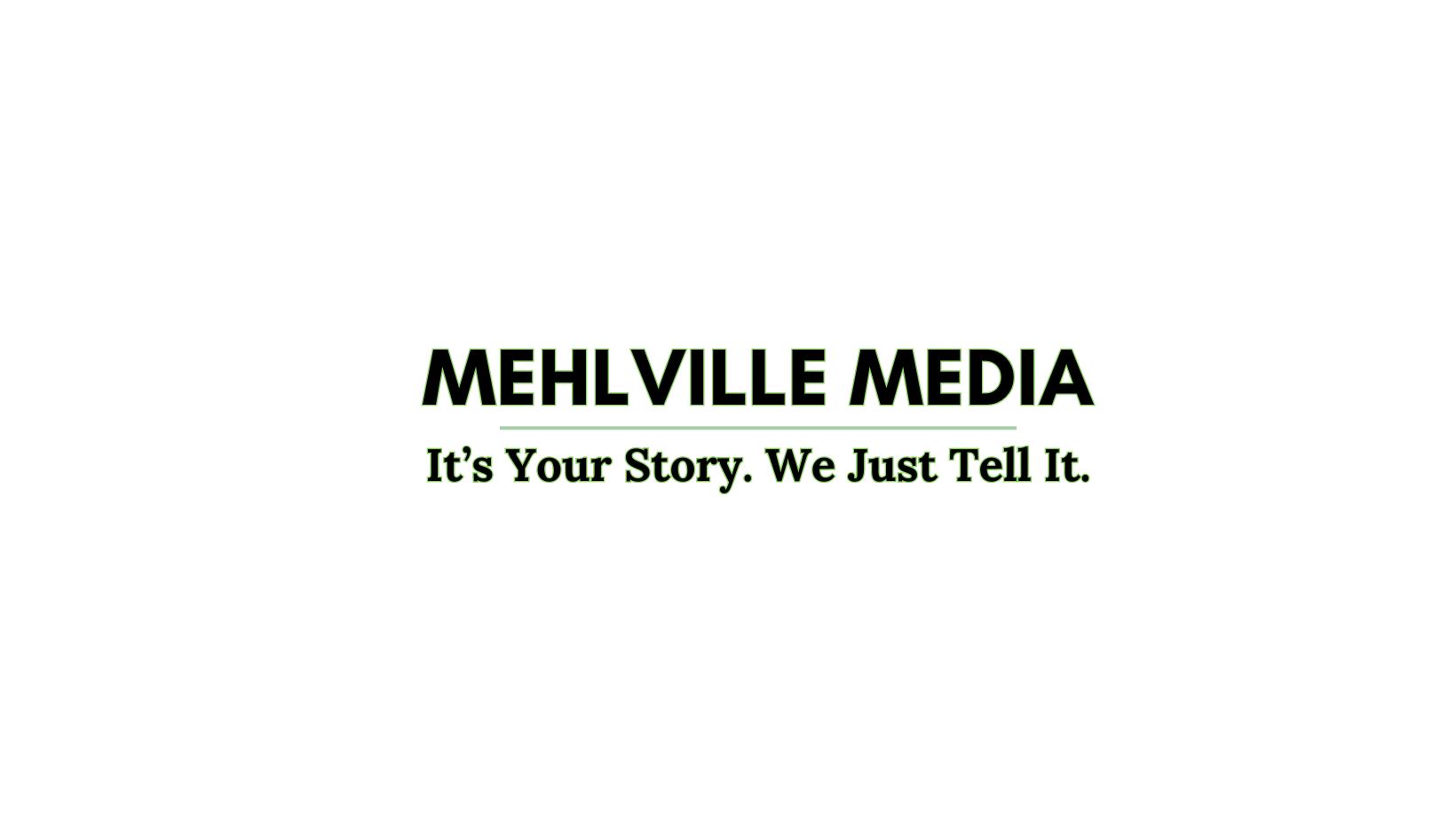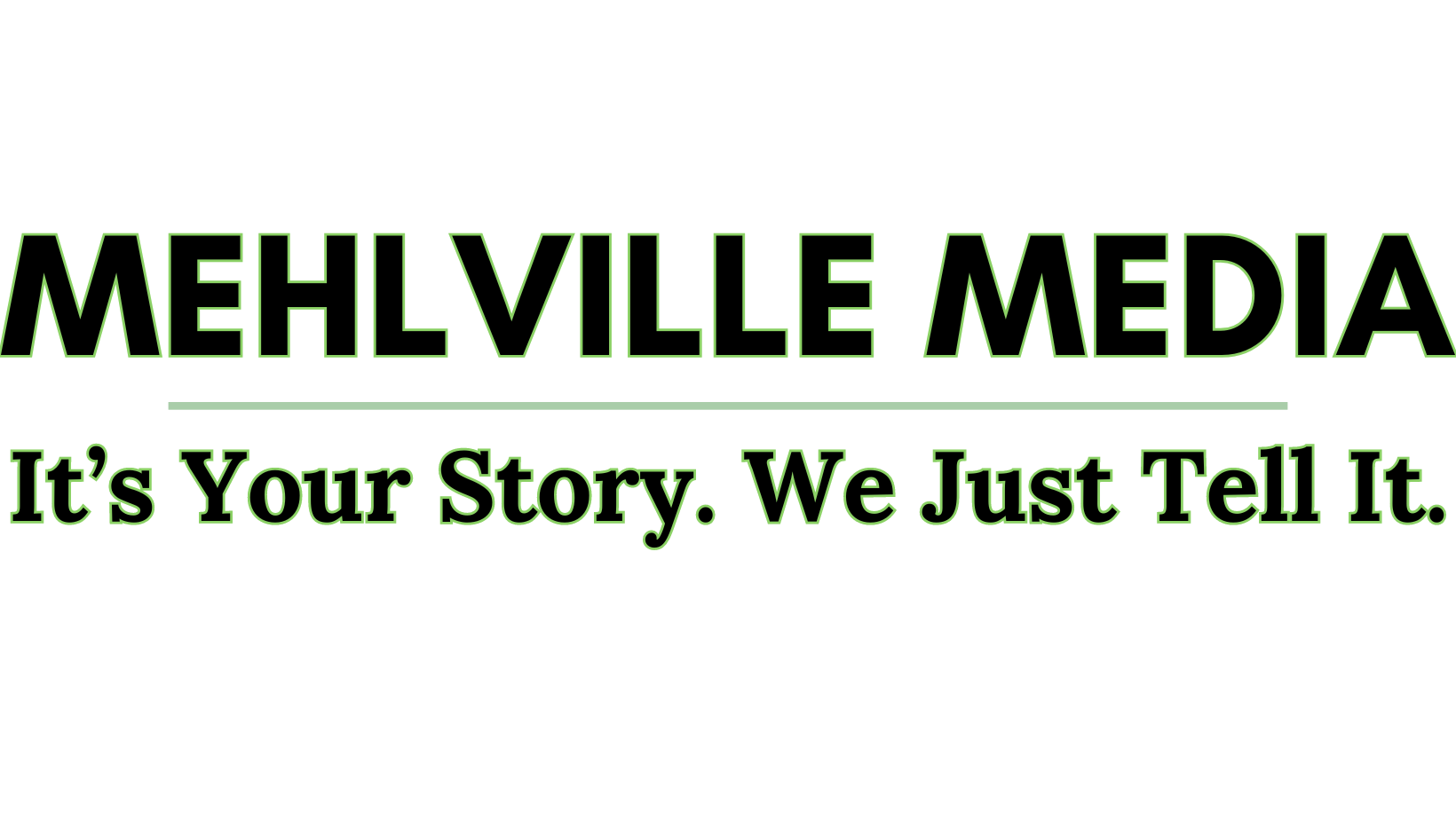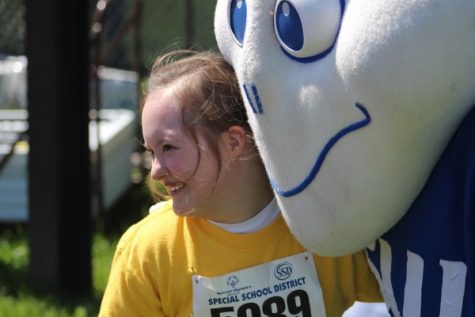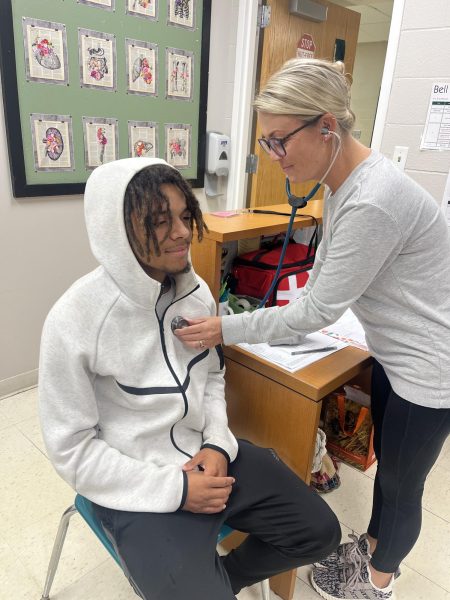The Silence Among Students
Should students be required to take a public speaking class?
Nervously walking up to the front of the class, trembling to speak the words coming out of your mouth. You are standing there in fear afraid to present your work. The butterflies in your stomach, the sweaty palms and voice cracks, public speaking can be utterly terrifying.
Students all over the world sit back in their chairs and desks, hunched over trying to avoid getting called on or sit in fear because they have to present in front of their class.
The problem that many schools and hiring jobs are running into is that many young adults are unable to speak professionally or with confidence. Today’s society has shaped the way students communicate with the world around them.
public speaking teacher, Kathleen Tienes, voiced her own opinion about students and their lack of communication.
“The major problem with public speaking is getting students out of their comfort zone, and being able to talk in front of others,” said Tienes.
According to USA Today, “A 2013 survey by the National Association of College and Employers found that the ability to communicate effectively is the quality employers most want to see in new recruits.”
“There’s not a single profession out there that you don’t pass the use of public speaking skills,” said Tienes.
The second problem young adults run into is that some schools that don’t require a public speaking class are just setting their up students for a future of silence. What we don’t realize is that our future depends on the education we are receiving now.
Nowadays, most students have the ability to choose their own classes for the upcoming school year. Allowing students to choose their own classes, along with their required courses can help a student express their abilities and can narrow down a specific path on what a student wants to do later in life.
Giving students the independence to choose their own classes can help boost creativity and confidence, but what if the classes they are taking aren’t utilizing the right creativity and boosting the right confidence?
“It’s all about gaining the confidence, knowing that you will actually take something in high school that you will use in every single of your college career and your work career, it makes it absolutely worthwhile,” said Tienes.
Tienes says that she has seen students improve over the whole entire course from not speaking one word, to projecting a five minute speech.
Students are capable of building this confidence but recently, we have been distracted by our society that lies around us.
The third problem society runs into is our priorities. With the technology constantly improving, young adults are always staying connected through social media. We tend to rely on the power of text messaging, and forms of social media to voice our own opinions and feelings; yet we can’t physically project our own opinions in our classrooms.
It remains to be the number one phobia, and is the leading cause for insecurity, introvertedness, and our troubled futures.
An article written on Breaking Down Barriers, states that three out of four individuals suffer from speech anxiety. That’s roughly 75 percent of the world’s population.
Students disagree with a required public speaking class because they cannot gain enough self confidence to have the will in order to better themselves and their future, yet we do not see the potential positive outcomes of what would happen if we were all experienced in a course of public speaking.
The outline of a public speaking course in high school allows students to experience oral interpretation, and will develop confidence as well as techniques for interpersonal, small group, and public communication skills.
Several college students and young adults realize that speaking in front of people becomes a part of their everyday lives’, and they would have been better off taking a public speaking class before going off into the real world.
Overcoming that one step of presenting, or even speaking is the first step to strengthening skills such as researching and critical thinking. These skills are vital in everyday life and are able to shape the way people voice their ideas, and act upon their influences.










